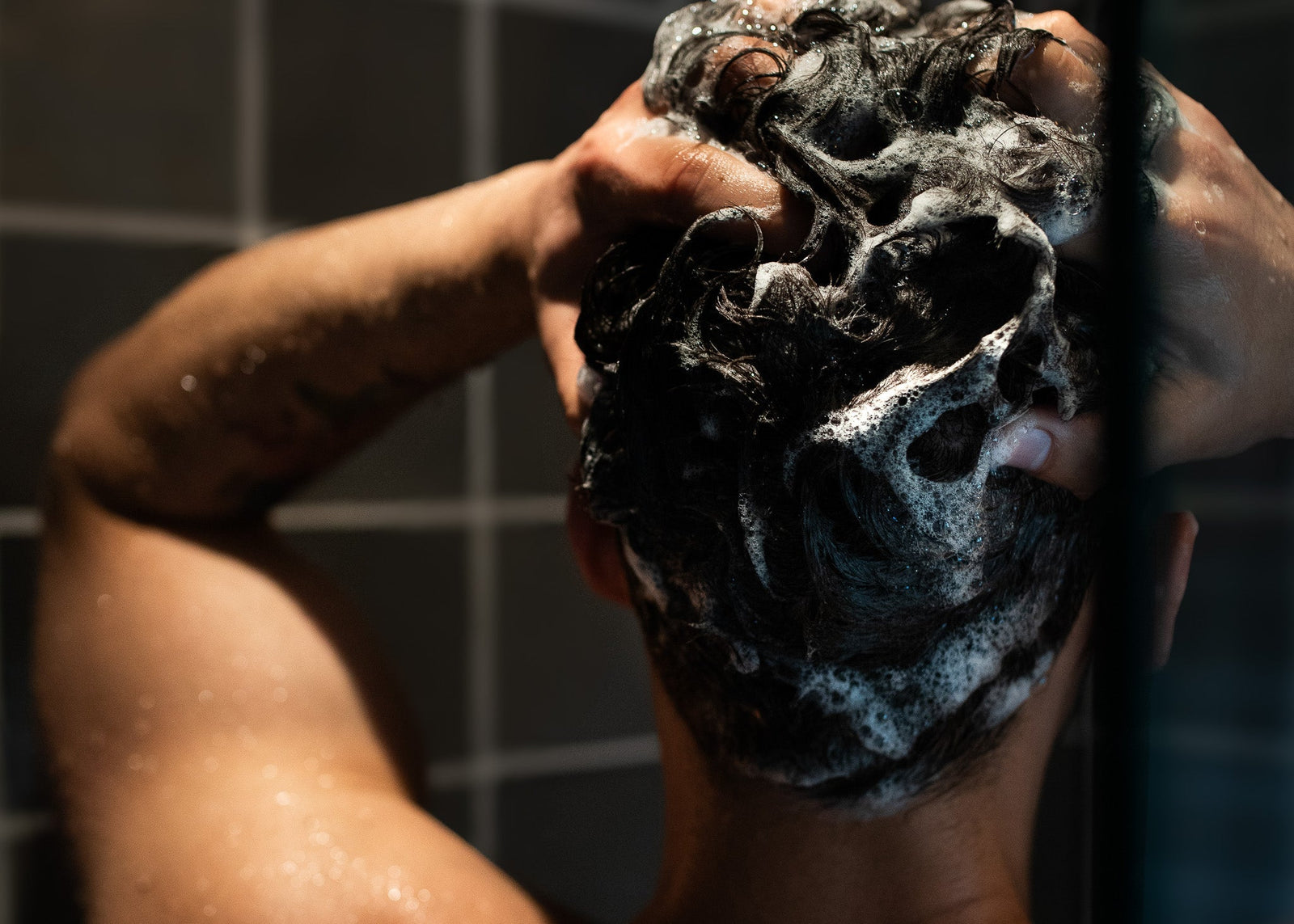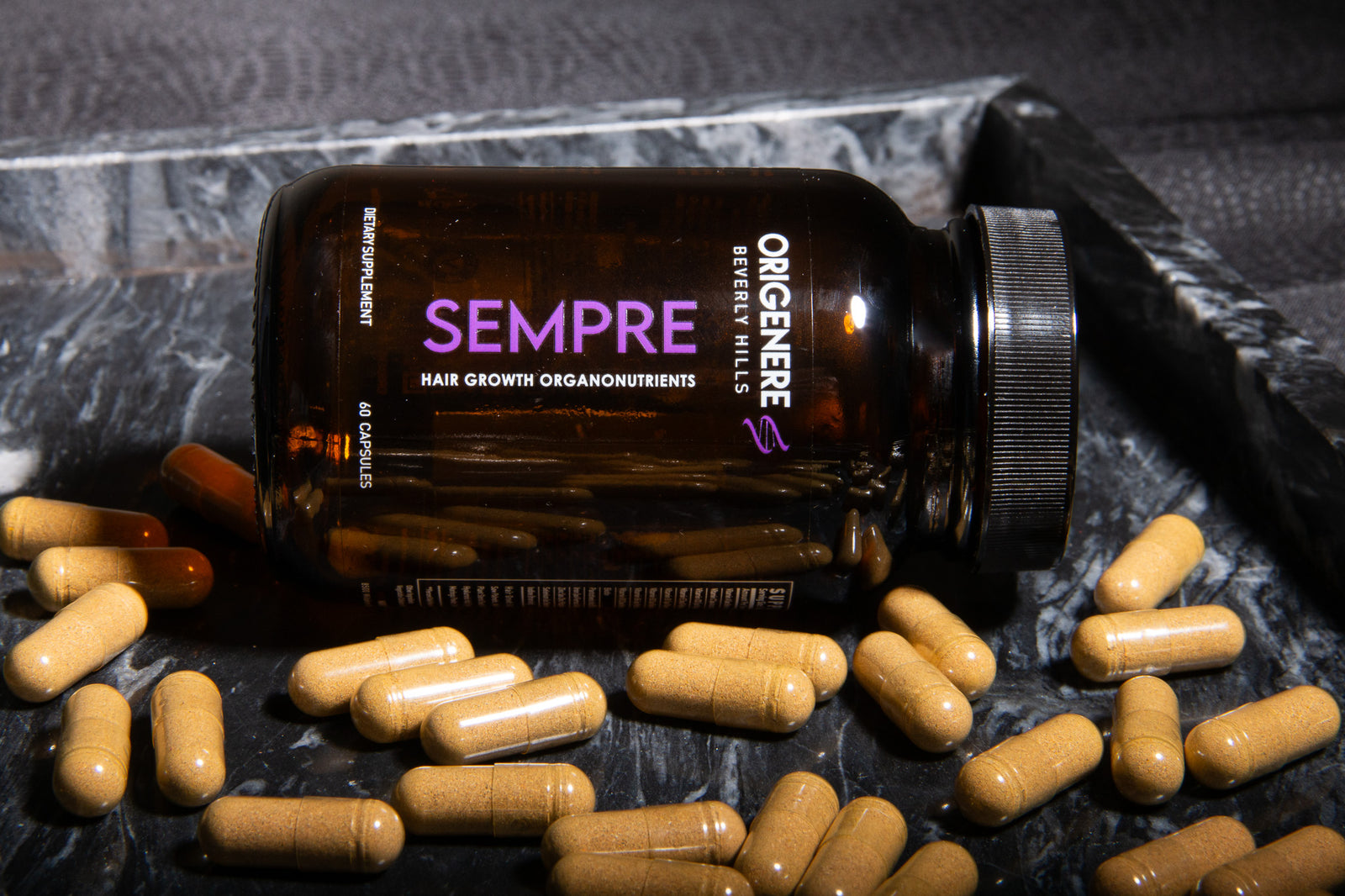Nurturing Your Scalp: Tips for a Healthy Scalp

Why Scalp Health Matters
A healthy scalp is the foundation for healthy hair. Think of your scalp as the soil in a garden—without the right care, your hair won’t thrive. Your scalp’s health influences everything from hair texture to growth, making it essential to maintain optimal scalp health. In this article, we'll delve into why scalp health matters, provide essential tips for maintaining a healthy scalp, and explore how your diet and lifestyle choices can impact your hair's vitality. Whether you're looking to improve your hair's texture, boost growth, or simply maintain a healthy scalp, this guide will equip you with the knowledge you need to nurture your scalp and, in turn, your hair.
Promotes Hair Growth
A well-nourished scalp creates the ideal environment for hair follicles to grow. Without common scalp conditions like dandruff or excessive oiliness, your hair can grow stronger and thicker.
Prevents Scalp Conditions
Following tips for a healthy scalp can help prevent conditions like dandruff, psoriasis, and seborrheic dermatitis. These issues can damage hair follicles, leading to hair loss and breakage.
Enhances Hair Texture and Quality
Just as rich soil produces lush plants, a healthy scalp leads to smooth, shiny hair. By focusing on scalp health, you reduce the likelihood of tangling and dullness in your hair.
Boosts Overall Hair Health
A healthy scalp not only promotes growth but also keeps your hair nourished and resilient. Proper cleansing and moisturizing are vital tips for maintaining both scalp and hair health.
Reduces Itchiness and Discomfort
An unhealthy scalp can be itchy and uncomfortable, affecting your quality of life. By following basic scalp care tips, you can avoid irritation and enjoy a comfortable, itch-free scalp.
Nutritional Support for Scalp Health
Maintaining a healthy scalp isn't just about what you put on it; it's also about what you put in your body. The right nutrients can make a world of difference to the health of your scalp and hair.
Essential Nutrients
Certain vitamins and minerals are crucial tips for a healthy scalp:
- Vitamin A: Helps produce sebum, an oily substance that moisturizes the scalp and keeps hair healthy.
- Vitamin C: A powerful antioxidant that helps protect the scalp from damage caused by free radicals.
- Vitamin D: Essential for hair follicle health. A deficiency can lead to hair thinning and even hair loss.
- Vitamin E: Helps maintain a healthy scalp by reducing oxidative stress and enhancing blood circulation.
- Biotin: Supports the production of keratin, a protein that's a key component of hair structure.
- Omega-3 Fatty Acids: Improve scalp health by reducing inflammation and promoting blood circulation.
Incorporate these nutrient-rich foods into your diet to give your scalp the nourishment it needs:
- Carrots: Rich in Vitamin A.
- Citrus Fruits: Packed with Vitamin C.
- Fatty Fish: Excellent sources of Vitamin D and Omega-3 fatty acids.
- Almonds: Loaded with Vitamin E.
- Eggs: A great source of biotin.
- Spinach: Packed with almost every nutrient beneficial for the scalp.

Daily Scalp Care Routine: Daily Tips for a Healthy Scalp
A healthy scalp doesn't just happen overnight. It requires consistent care and attention. Here's simple tips for a healthy scalp to keep your scalp in top condition every day.
Gentle Cleansing
Using a mild, all-natural, sulfate-free shampoo is essential for cleansing your scalp without stripping away its natural oils. Opt for shampoos that contain natural ingredients like tea tree oil, aloe vera, or chamomile.
Natural Hair Products
Switching to natural hair products can make a significant difference in scalp health. Look for products free from parabens, silicones, and artificial fragrances.
Moisture Balance
Maintaining the right moisture balance for your scalp is crucial. Keep your scalp hydrated by using a light, non-comedogenic oil like jojoba or argan oil.
Scalp Massage
Regular scalp massages improve blood circulation, which can boost hair growth. Use your fingertips to gently massage your scalp for about five minutes each day.

Sun Protection
Just like your skin, your scalp needs protection from the sun. Wear a hat or use a hair product that contains SPF when you know you'll be exposed to the sun for extended periods.
Consistently following these daily practices can significantly improve your scalp health, setting the stage for strong, vibrant hair.
Lifestyle Choices Impacting Scalp and Hair Health
Your daily choices can significantly impact your scalp and hair health. Follow these lifestyle tips for a healthy scalp to nourish your scalp and hair.
Stress Management
Stress triggers can lead to poor scalp health by causing conditions like dandruff and hair loss. Managing stress through exercise, meditation, and adequate sleep can improve scalp health.
Quality Sleep
Poor sleep can directly affect your scalp and hair health. Ensure you get 7-9 hours of sleep each night to promote hair growth and hormone balance.
Regular Exercise
Exercise benefits your scalp by improving blood flow and reducing stress. Aim for at least 30 minutes of moderate exercise most days.
Following these lifestyle tips can lead to a healthier scalp and, consequently, healthier hair.
Botanical Ingredients for Scalp Health
When it comes to nurturing your scalp, nature offers some incredible remedies. Using botanical ingredients can be an effective and natural way to maintain a healthy scalp. Highlighting our Buongiorno line, which contains scalp superheroes like aloe vera, tea tree oil, peppermint oil, and rosemary, can provide remarkable benefits.
Tea Tree Oil
Tea tree oil is a savior for those struggling with scalp issues. Loaded with antibacterial and antifungal properties, tea tree oil can help keep your scalp clean and free of infections.
Peppermint Oil
Peppermint oil stimulates blood flow to the scalp, which can promote hair growth. The increased blood circulation ensures that hair follicles receive essential nutrients.
Rosemary Oil
Rosemary oil is renowned for improving circulation, which can help stimulate hair follicles and promote hair growth.
These botanical ingredients can do wonders for your scalp health. Integrate them into your hair care routine to enjoy a healthier scalp and stronger, shinier hair.
Aloe Vera
Known for its soothing and moisturizing properties, aloe vera can help to calm an irritated scalp. Its natural enzymes can also rid the scalp of dead skin cells. For an all natural instant itchy scalp relief, try Naturale Scalp Tonic made with aloe vera and more.

Common Scalp Conditions and Remedies
Dandruff
Dandruff is a widespread scalp condition characterized by flaky, itchy skin. Two popular natural treatments for dandruff are apple cider vinegar and tea tree oil. Some botanicals studied and shown to have effectiveness as natural remedies for dandruff include tea tree oil, peppermint oil, aloe vera and rosemary.
Psoriasis
Scalp psoriasis causes red, scaly patches on the scalp. Natural remedies for scalp psoriasis include aloe vera and tea tree oil. Aloe vera's cooling and soothing effects can reduce itchiness and inflammation. Learn more in Natural Remedies for Scalp Psoriasis.
Seborrheic Dermatitis
Seborrheic dermatitis is characterized by red, inflamed skin covered with flaky, white or yellow scales. Coconut oil and tea tree oil can help treat this condition.
By incorporating natural botanicals into your hair care routine, you'll promote a healthier scalp and, in turn, healthier hair. If you want the best shampoo and conditioner for scalp health, try Origenere's Buongiorno line which contains natural botanicals that target scalp health including tea tree oil, peppermint oil, rosemary and aloe vera.

Frequently Asked Questions
Q: How often should I exfoliate my scalp?
A: It’s recommended to exfoliate your scalp once a week to remove dead skin cells and improve circulation.
Q: Can diet really impact scalp health?
A: Yes, a diet rich in vitamins and minerals supports scalp health from within, promoting stronger, healthier hair.
Q: What’s the best way to moisturize my scalp?
A: Use light, non-comedogenic oils like rosemary or tea tree oil to hydrate your scalp without clogging pores.
Q: How does stress affect scalp health?
A: Stress can lead to scalp issues like dandruff and hair loss. Managing stress through exercise, meditation, and sleep can improve scalp health.
Q: Are natural remedies effective for treating scalp conditions?
A: Yes, many natural remedies like tea tree oil, aloe vera, and peppermint oil have been studied for their effectiveness in treating common scalp conditions.
Conclusion
Scalp health is the cornerstone of beautiful, strong hair. By prioritizing your scalp's well-being, you lay the groundwork for healthier hair growth, better texture, and increased shine. Incorporate the tips for a healthy scalp and botanical ingredients shared in this guide to nourish your scalp effectively. From using sulfate-free shampoos and natural oils to eating a balanced diet packed with essential vitamins, these steps can transform your hair from the root up. Make scalp care a regular part of your hair care routine. The results will speak for themselves—stronger, shinier, and more resilient hair. Keep nurturing your scalp, and you'll enjoy the benefits of beautiful hair for years to come. Stay tuned for more tips and advice on achieving optimal scalp and hair health!
Sources:
Role of Scalp Health in Achieving Optimal Hair Growth and Retention
Survey of Use of Herbal and Herbal Remedies for Hair and Scalp Among Women in North West Saudi Arabia
Ethnopharmacological Survey of Home Remedies Used for Treatment of Hair and Scalp and Their Methods of Preparation in the West Bank Palestine
Oxidative Stress and Its Impact on Skin, Scalp and Hair
The Role of the Microbiome in Scalp Hair Follicle Biology and Disease





Leave a comment